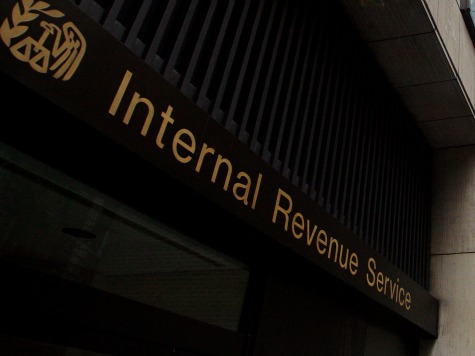Vox.com, Ezra Klein’s new “explainer” website, explains that the IRS scandal was all about budget cuts–not corruption:
The core issue is that the IRS needs to figure out which nonprofit groups that file as 501(c)4s for tax purposes are eligible…But enforcing that is tough…it requires investigating each group to see exactly what they’re up to. That takes manpower, and time, and money. And Congress has been consistently denying the IRS those resources. So it’s no wonder that they took shortcuts.
Here comes the big caveat:
Of course, if those shortcuts were in fact politically biased, there’sonly so much that budget cuts could have contributed to that. There’s nobudgetary reason to look for groups with “Tea Party” in the name andnot ones with “progressive.” But again, accounts differon whether or not the watch-words they used were in fact biased.
And here is where Vox has decided to enter progressive fantasy land. Though he won’t come right out and say it, author Dylan Matthews is toying with the idea that maybe the divergent treatment of conservative groups never really happened at all. He links (twice) to a Think Progress piece lamely attempting to argue this.
Of course for this to be true you have to ignore the IG report, which found improper criteria had been used to single out conservative groups. And of course that means the IRS should never have explicitly admitted it gave conservative groups added scrutiny and apologized for it. And it goes without saying the President should never have demanded the resignation of the acting IRS commissioner. Forget all of that and instead let’s just pretend it was a bipartisan problem, which is to say a phony scandal.
But there’s another, bigger problem with going down this route, one which Vox ought to be aware of: The data don’t support the idea that this was a bipartisan scandal. In fact, the Committee on Oversight issued a 141-page report debunking that idea two months ago. Strangely, Vox doesn’t mention it. Here’s an excerpt from the executive summary:
The IRS’s independent watchdog, the Treasury Inspector General for Tax Administration (TIGTA), confirms that the IRS treated conservative applicants differently from liberal groups. The inspector general, J. Russell George, wrote that while TIGTA found indications that the IRS had improperly identified Tea Party groups, it “did not find evidence that the criteria [Democrats] identified, labeled ‘Progressives,’ were used by the IRS to select potential political cases during the 2010 to 2012 timeframe we audited.” He concluded that TIGTA “found no indication in any of these other materials that ‘Progressives’ was a term used to refer cases for scrutiny for political campaign intervention. “
An analysis performed by the House Committee on Ways and Means buttresses the Committee’s findings of disparate treatment. The Ways and Means Committee’s review of the confidential tax-exempt applications proves that the IRS systematically targeted conservative organizations. Although a small number of progressive and liberal groups were caught up in the application backlog, the Ways and Means Committee’s review shows that the backlog was 83 percent conservative and only 10 percent were liberal-oriented. Moreover, the IRS approved 70 per cent of the liberal-leaning groups and only 45 percent of the conservative groups. The IRS approved every group with the word “progressive” in its name.
In addition, other publicly available information supports the analysis of the Ways and Means Committee. In September 2013, USA Today published an independent analysis of a list of about 160 applications in the IRS backlog. This analysis showed that 80 percent of the applications in the backlog were filed by conservative groups while less than seven percent were filed by liberal groups. A separate assessment from USA Today in May 2013 showed that for 27 months beginning in February 2010, the IRS did not approve a single tax-exempt application filed by a Tea Party group. During that same period, the IRS approved “perhaps dozens of applications from similar liberal and progressive groups.”
Having ignored all of this, Vox offers its alternative explanation:
Whatseems likelier than a nefarious conspiracy of mid-level IRS managementto destroy the Tea Party is a group of overworked bureaucrats who sawgroup names as a way to make an utterly unmanageable workload somewhatmore manageable.
Unless their workload was made more manageable by disproportionately selecting conservative groups for scrutiny and then pressuring them for expansive details like donor lists that doesn’t really cut it.
What seems more likely when you look at all the evidence is that the IRS was put under intense pressure from the President and Democrats in Congress to “fix the problem” of money entering the 2010 election through conservative 501 groups. They responded to that pressure and wound up stopping approval of conservative groups for more than two years.
If Vox really wanted to explain the IRS scandal it would at least mention some of the facts that don’t fit with its new theory. The fact that it goes out of its way to ignore nearly every fact to the contrary says something about the quality of this particular theory but also about Vox’s purported role as an “explainer” of the news.

COMMENTS
Please let us know if you're having issues with commenting.